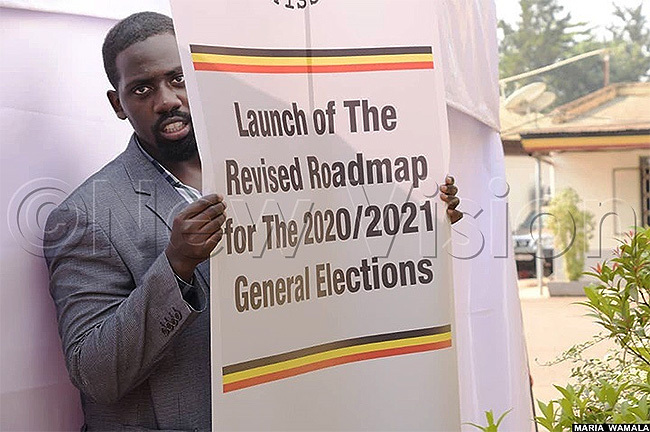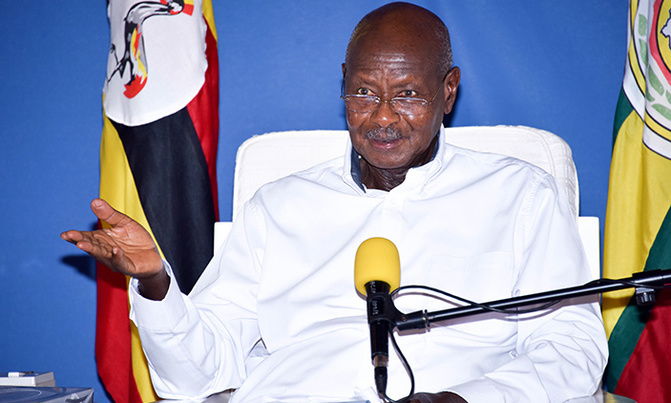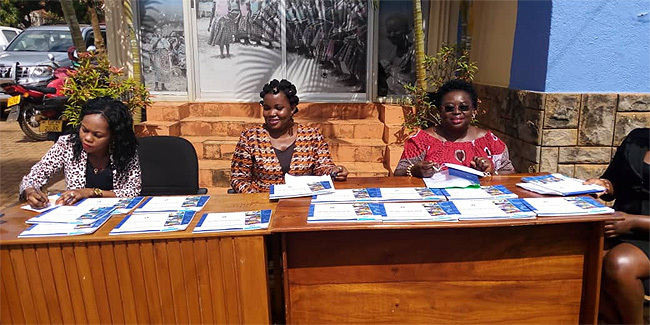Scientific elections | Women's group wants reforms in revised election roadmap
UWONET fears “digitalising elections might combine with pre-existing inequalities to unduly disenfranchise women and youth”.
ELECTIONS
KAMPALA - When the Electoral Commission launched a revised roadmap for the 2020/21 electoral process mid-this month, opinions on the idea were divisive.
The revision considered the current coronavirus pandemic, which Uganda has tried to deal with by enforcing such measures as social distancing and wearing of masks to prevent the spread of the deadly virus.
As of Sunday, Uganda has registered a total of 870 COVID-19 cases, with no related death recorded thus far. As many as 808 patients have recovered from the virus, according to the health ministry.
While the election roadmap move is necessary, some actors feel a ‘scientific' electoral process will deny a considerably large section of the voting population and other stakeholders the chance to participate.

Uganda Women's Network (UWONET), for instance, voiced their fears about how "digitalising elections might combine with pre-existing inequalities to unduly disenfranchise women and youth".
The leadership of the advocacy organization talked of the need for reforms in the revised roadmap, with such issues as affordability of media as the primary campaign platform put into consideration.
On top of the high cost of using traditional and digital media, the group argues that equal access to these platforms by all political aspirations will highly be impossible - unless a mechanism of regulation is put in place.
Bearing the brunt of coronavirus
Like many other nations around the world, Uganda has felt the full force of the COVID-19 crisis, which necessitated nationwide modifications to normal life - best illustrated by the freezing of economic and social activities to arrest the spread of the virus.
More than three months since the coronavirus lockdown was first announced, Uganda is slowly picking itself back up with a phased lifting of the lockdown.
The lockdown came a couple of months towards the end of Uganda's five-year electoral cycle and so inevitably, questions began to emerge as to what would become of next year's general elections.
In his latest address to the nation about Uganda's response to the pandemic last week, President Yoweri Museveni touched on the subject.
He said the Electoral Commission had consulted with the scientists over options on the course of action as regards the general and local government elections. They felt a scientific process was the most ideal - and safe - option.

Campaigns, as we know them in the traditional sense, would present problems.
Museveni said the "danger is in the holding of public gatherings" and that "if you eliminate those and messages of the contestants are passed on through the radios, TVs, social media, etc., the gathering for the elections themselves, can be safely managed with hand-washing and social distancing".
Rallying Ugandans to support this option, Museveni underlined that "this [not only] would remove the uncertainty that would be created by the postponement of the elections, but also ensure that elections are held safely".
But UWONET, pointing at recent data, are arguing that a sizeable portion of the population do not have access to media platforms where the campaigns are planned to be held. They are also pointing at the inadequacies in smart phone ownership, let alone internet access to get onto social media.
"As women of Uganda, we are mindful of these intersecting inequalities in access to the different media platforms, and thus contend that an election which will be conducted without first addressing the issues (we have explicated) will inevitably disfranchise women, youth and rural populations from participating in the forthcoming elections," the group said in a statement.
Disciplinary action, community radios and joint campaigns

So what does UWONET want to see done?
The advocacy network wants the Electoral Commission (EC) to consult with all stakeholders to examine the said issues and to "seek practicable solutions to ensure inclusivity of the proposed roadmap".
Considering the limited media outreach in especially the rural areas, UWONET wants the EC to allow for "social-distanced face-to-face meetings for a minimum of 50 people and maximum 100 depending on the size of the facility for the meeting" with the guidance of the health ministry on appropriate standard operating procedures.
Besides adopting joint candidate campaigns in the media to address the issue of equal access by candidates, the group also suggests the reinstatement of community radios to allow more citizens to access information.
They also want the EC to "take charge of ensuring that the provisions of the law on access to especially state-owned media are adhered to by all public media" and to propose penalties for abusing the provisions of the law for adoption by Parliament.
The group also proposes that the election body meets with private radio owners and "build consensus on access to media for all candidates regardless of party or political affiliation", with the discussion focusing on the rates of airtime "since elections are an important public good".
Another of UWONET's recommendations is that the EC should take disciplinary actions against actors who have in previous elections participated in banning certain candidates from being hosted on radio stations.
The argument for this one is that "inaction will continue to undermine equal access to media as seen in previous elections, thereby denying voters an opportunity to make an informed choice based on the policy pronouncements and proposed programmes of the candidates".